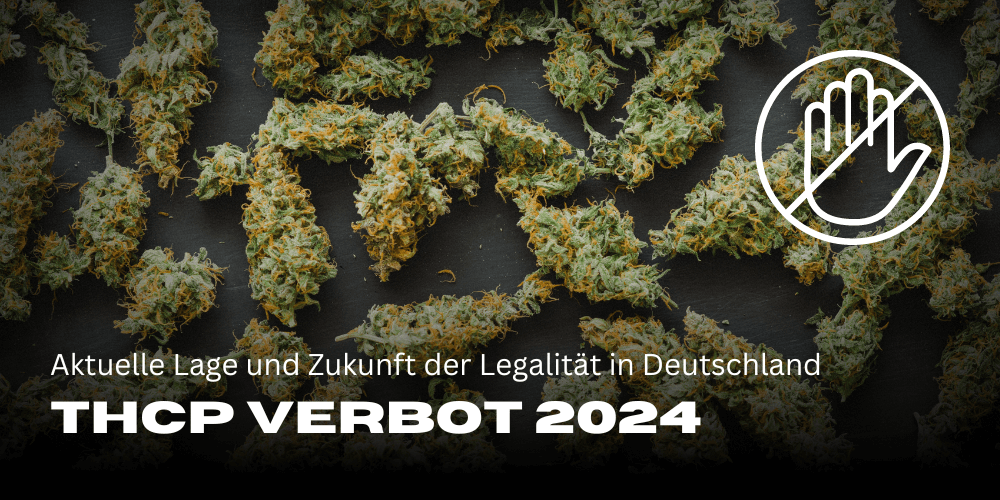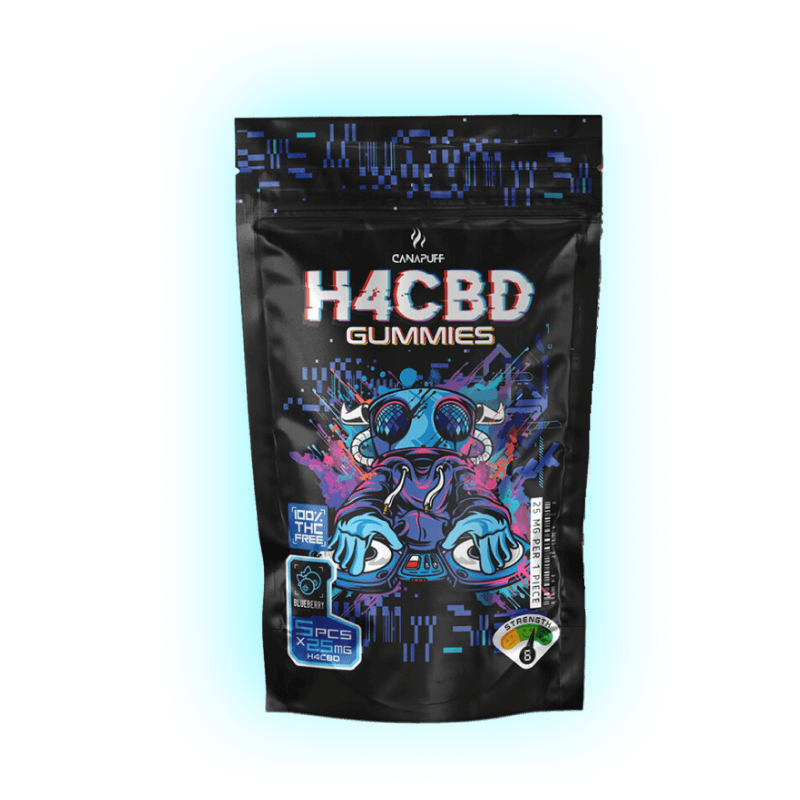THCP ban 2024: current situation and future of legality in Germany

Inhaltsverzeichnis: THCP ban 2024: current situation and future of legality in Germany
THCP ban: What exactly is THCP and why is everyone talking about it?
THCP, or tetrahydrocannabiphorol, is a fairly new cannabinoid that was only discovered by Italian scientists in 2019. It was found by chance when researchers were taking a closer look at a particular cannabis strain. The special thing about THCP is its molecular structure, which differs from conventional THC. While THC has a side chain with five carbon atoms, THCP has a chain seven carbon atoms long - sounds technical at first, but it makes a big difference. This structure ensures that THCP binds much more strongly to the CB1 receptors in the brain. In simple terms, this means that the effect of THCP could be many times stronger than that of THC.
Now you might be wondering why THCP is in the spotlight right now? For one, it's because of the potentially more intense effects that set it apart from other cannabinoids. There is also some debate about whether THCP could have therapeutic potential, for example in pain therapy. On the other hand, the unclear legal situation raises many questions. In some regions it is already strictly regulated or even banned, while in others there are still no clear rules. These uncertainties make THCP a hot topic, both in research and in the legal debate.
In short: THCP is an exciting but also controversial cannabinoid that is in the spotlight due to its powerful effects and the current legal discussions.
Current situation regarding the THCP ban 2024: Where is THCP legal and where is it not?
The legal situation surrounding THCP in Germany and Europe is currently still in flux and varies from country to country. In Germany, THCP is currently legal, as it is not specifically regulated by the Narcotics Act (BtMG). Unlike other psychoactive cannabinoids such as THC, which are strictly regulated, THCP is not currently subject to an explicit ban as long as it does not pose a risk of abuse or is classified as a narcotic.
However, this situation could change as legislation in Germany and the EU is constantly evolving. With the recent introduction of the Cannabis Act in Germany, which regulates the recreational use of cannabis, there are moves to regulate other cannabinoids more clearly too. It is possible that THCP will be more strictly controlled or even banned in the future if it is deemed to be harmful to health or susceptible to abuse.
In Europe, the legal situation also varies greatly. In most EU countries, THCP is legal as it is not explicitly banned. Nevertheless, in some countries, similar to Germany, there are no clear regulations, which increases uncertainty for consumers and companies.
Experience with THCP and effects of prohibition on users
THCP has quickly made a name for itself among cannabis users, mainly due to its potent effects, which are often described as significantly stronger compared to traditional THC. Many users report intense psychoactive effects ranging from deep relaxation to a strong, almost overwhelming high. This strong effect makes it interesting for experienced users, while beginners should be more cautious.
Effects of prohibition:
In regions where THCP is banned, many users are faced with the challenge of either turning to the black market or looking for alternatives. However, the risk of buying on the black market is high, as the quality and purity of the products is often not guaranteed. Finding alternatives that offer similar effects to THCP is therefore a popular option among consumers.
Recommended alternatives: 10-OH-HHC and HHC-A
- 10-OH-HHC: This cannabinoid is one of the new up-and-coming alternatives on the market. It is referred to as Hydroxy-HHC and offers an effect that is somewhere between the well-known Delta-9-THC and conventional HHC. 10-OH-HHC is prized for its relaxing and mildly euphoric effects, which can be less intense than THCP but stronger than HHC. It offers a good balance for those who are looking for a strong effect but cannot use THCP due to prohibition.
- HHC-A: HHC-A is another promising substitute. It is the acetate version of HHC and offers a slightly modified effect that is often described as gentler and more physical. HHC-A is less psychoactive than THCP, but offers a pleasant, calming effect that is an attractive alternative for many users.
Both cannabinoids offer a legal and safe way to experience similar effects to THCP without violating legal regulations. They are a good choice, especially in markets where THCP is banned, for users who are still looking for a strong and pleasurable effect.
Future of the THCP ban: current situation and possible developments in Germany
The future of THCP prohibition in Germany depends heavily on evolving legislation, both at a national and European level. Unlike in the USA, where the 2023 Farm Bill plays a central role, other legal regulations are decisive in Germany and the EU.
Current situation:
In Germany, THCP is currently legal as long as it is not explicitly covered by the Narcotics Act (BtMG). However, there are indications that this may not remain the case permanently. With the introduction of the new Cannabis Act, which regulates the recreational use of cannabis in Germany, stricter regulations for other cannabinoids such as THCP could also be considered. In recent years, the German government has shown increasing interest in tightening control over new psychoactive substances in order to minimize health risks.
Possible changes:
It is conceivable that the German government will introduce specific regulations for THCP in the near future, particularly if the substance continues to grow in popularity. If THCP is found to be particularly potent or potentially dangerous, new laws or amendments to the Narcotics Act could be introduced to more strictly control or ban the sale and use of THCP.
At European level, there are also considerations to tighten the regulations for new cannabinoids. This could lead to a harmonized approach in which THCP is regulated similarly in all EU countries, which could further change the legal situation.
















